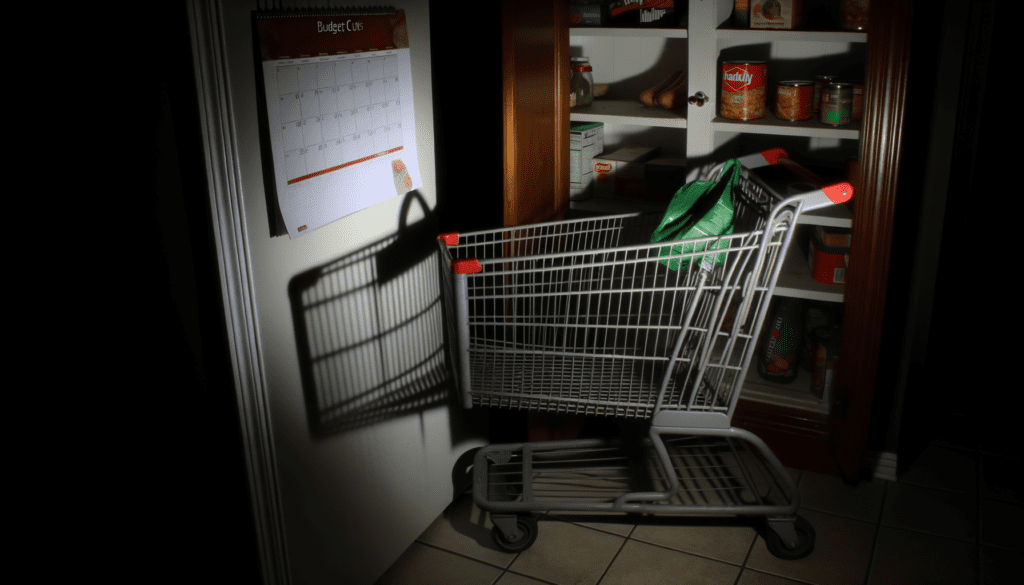As federal legislators debate President Donald Trump’s proposed budget cuts, alarm bells ring loudest among food security advocates nationwide. The suggested slashes could diminish essential funding aimed at combatting hunger, causing significant pain points for families reliant on these programs. Local food assistance initiatives, especially pivotal in addressing insecurity, supporting local farms, and bolstering community resilience, are facing significant threats.
Drastic Funding Cuts Spell Disaster for Community Nutrition Programs
The Trump administration’s proposal seeks to trim well over $1 billion from food assistance funding, severely affecting programs like the Local Food Purchase Assistance Cooperative Agreement Program (LFPA) and local nutrition schemes focusing on providing fresh produce to schools. These funding streams have reinforced not only nutritional standards for students but also local economies by connecting farmers directly to food banks and schools.
For local communities across states like Indiana, Connecticut, and North Carolina, these cuts aren’t mere numbers on paper—they mean fewer meals on tables. Indiana alone risks losing $27.5 million, impacting nearly 450 schools dependent on local produce. Virginia Pleasant, the co-executive director of the Northwest Indiana Food Council, described these cuts as nothing short of devastating, highlighting how deeply local producers and community hubs rely on federal assistance.
In Connecticut, where food insecurity affects one in eight residents, the proposed budget revisions threaten 516 food distribution locations that procure from 131 local farms. Connecticut Foodshare and other advocates are urging state Governor Ned Lamont to back a bill that would allocate $10 million in state funding to mitigate these potential losses.
Fighting Back: Lawmakers and Advocates React
Lawmakers aren’t taking these proposed cuts lightly. Congressman Richard Neal of Massachusetts articulated his staunch criticism, calling efforts to balance the federal budget via hunger relief cuts “nonsense.” Neal emphasizes the grave implications these budget changes could have for approximately 194,000 households in his western Massachusetts district alone, spotlighting the human cost of reduced daily SNAP benefits.
Senator Angus King and 30 other senators have raised sharp objections in a letter to Brooke Rollins of the USDA. Their concern amplifies that these sudden funding withdrawals harm not only low-income families but radically disrupt local agricultural economies. The letter pointed out that the USDA’s sudden termination of contractual agreements, already signed with state and local programs, raises pressing questions about legal justifications and priorities.
“It’s fundamentally un-American to resolve budgetary shortfalls on the backs of our most vulnerable citizens. Food security isn’t merely an economic issue—it’s a fundamental human right,” argues a coalition of food advocates.
Second Harvest Community Food Bank in Missouri serves as a vivid example of these cuts’ tangible impacts. With its funding for fiscal year 2025 completely eradicated, Second Harvest now faces unprecedented operational hurdles, threatening its mobile pantries and other services critical to countless local families.
Impacts Beyond Immediate Hunger: Economic Ripples and Long-Term Consequences
The potential economic fallout from these cuts reverberates well beyond nutritional deficits. Local food banks, such as the Food Bank of Central and Eastern North Carolina, now grapple with finding alternative funding sources in a starkly challenging environment. Their efforts highlight the broader interconnectedness of food assistance programs with economic stability and community health.
Critically, these cuts could severely impair local economies. When farmers lose their institutional buyers—local schools and food banks—the entire local food ecosystem deteriorates, triggering economic instability and job losses.
Moreover, experts such as Christina Maxwell, Program Director at the Food Bank of Western Massachusetts, warn that the emergency food system simply cannot absorb such extensive financial hits. Under current proposals, Massachusetts alone would experience a 20 percent reduction in daily SNAP benefits, a staggering blow for a significant portion of the population already vulnerable to hunger.
Indeed, officials and advocates alike are raising their voices, imploring policymakers at the federal and state levels to recognize the critical role these programs play in ensuring nutrition equity and economic stability. They argue that such damaging cuts reflect a profound misunderstanding—or worse, a disregard for—basic human rights and economic sustainability.
These advocates argue that responsible budgeting entails safeguarding essential services, especially those directly affecting children’s health, family stability, and the vibrancy of local economies. While fiscal responsibility is vital, decisions that endanger the fundamental welfare of citizens—especially the most vulnerable—must be re-examined.
Community leaders, lawmakers, and food advocacy groups nationwide echo a shared message: when budget cuts threaten basic nutrition programs, they risk creating deeper inequalities and instability. As communities across America rally to resist these changes, their voices poignantly underline a collective responsibility towards social justice, sustainable economic practices, and basic human decency.
Rather than allowing these critical lifelines to become casualties of federal budget austerity, policymakers should look towards sustainable budgeting solutions—options that avoid compromising essential nutrition security programs. Only by safeguarding these vital services can communities hope to build stable, healthy, and prosperous futures for all.

